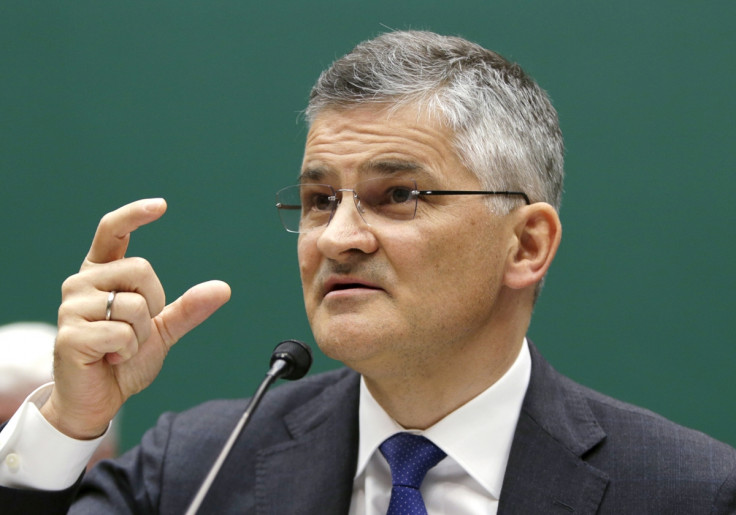VW scandal: Michael Horn says company not behind cheat device and blames 2 software engineers

Volkswagen's US operations chief Michael Horn came out strongly defending the company saying that it was not a corporate decision to install cheat software devices on 11 million diesel vehicles globally. He placed the blame solely on a couple of software engineers.
Facing the House of Representatives Oversight and Investigations panel in the US Congress on Thursday (8 October), he however conceded, after tough questioning, that even he found it difficult to believe this.
Initially, he told the panel: "This was a couple of software engineers who put this in for whatever reason. Some people have made the wrong decisions in order to get away with something that will have to be found out."
However, Chris Collins a representative from New York told Horn that he "categorically" rejected the idea that using the defeat devices was not a corporate decision and that software engineers were solely responsible. "Either your entire organisation is incompetent when it comes to trying to come up with intellectual property, and I don't believe that for a second, or they are complicit at the highest levels in a massive cover-up that continues today." And Horn's reply to that was: "I agree it's very hard to believe. Personally I struggle as well."
The German automaker has suspended 10 senior managers, including three top engineers, as part of its on-going internal investigation. Its then chief executive officer, Martin Winterkorn was also forced to resign when the scandal broke.
Horn also told the panel that he felt personally deceived and that it was wrong for companies to put profits before people. He said he was unable to sleep at night after the company admitted that 11 million vehicles were fitted with a defeat device aimed at cheating emissions tests.
"I have worked for 25 years for this company. Integrity, quality and not cheating was always for me a given for this company. I don't sleep at night," he said. He claimed that he had "no understanding" of what defeat devices were and only learned of them at a meeting in September that Volkswagen held with US and California air regulators.
Fixing problem could take years
Horn also told the panel that fixing the diesel cars so that they complied with the emissions requirements in the US will take years and required the approval of regulators. A small number of cars is expected to require only a software remedy.
Most of the cars affected, he said, would require more extensive changes, including possible installation of urea tanks that neutralise harmful emissions and particulates. VW is currently working to secure conditional approval from the US Environmental Protection Agency and Californian regulators to start software fixes in January next year on around 482,000 cars that had been fitted with the defeat devices.
Another group of cars that also is in need of fixing, would start no earlier than mid-2016. The company has not set a date to undertake the fixing of the 325,000 oldest Generation One cars that require the most work, Reuters noted.
When asked whether VW will replace cars that dealerships in the US are unable to sell as well as those of consumers with the 'tainted' vehicles, Horn said: "No. Our plan is not to buy back the inventory. Our plan is to fix the cars."
The EPA's Christopher Grundler, the head of the agency's transportation and clean air office, who also testified in front of the panel, said that VW is expected to provide options for fixing the cars early next week. Representative Frank Pallone, a New Jersey Democrat however said that Horn's statements did not give him "much confidence that we're going to see these vehicles get fixed."
The New York Times, in its editorial, heavily criticised Horn, saying "it is hard to believe that he did not follow up" initial reports about emissions problems with VW's headquarters. "Instead, he offered the standard defence - so often used by corporate executives in the face of misconduct - that no one of any importance knew anything of a fraud ..." The paper added: "Apologising is the easy part."
© Copyright IBTimes 2025. All rights reserved.






















